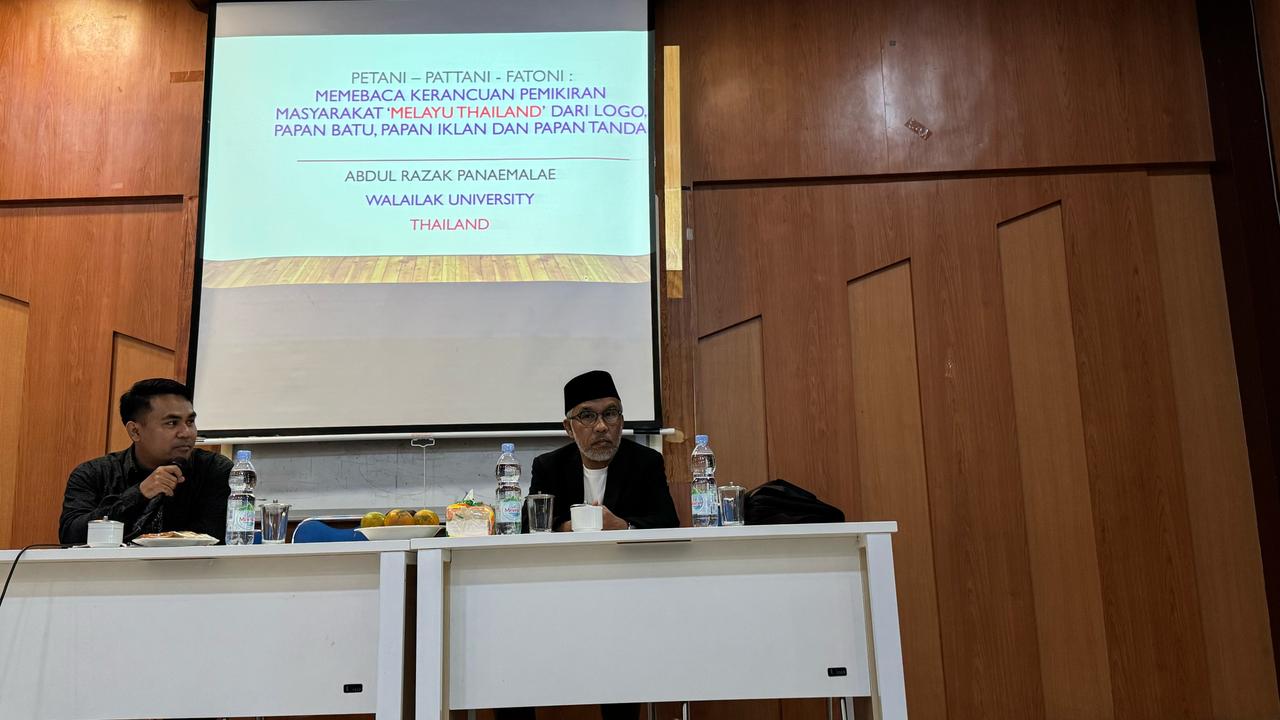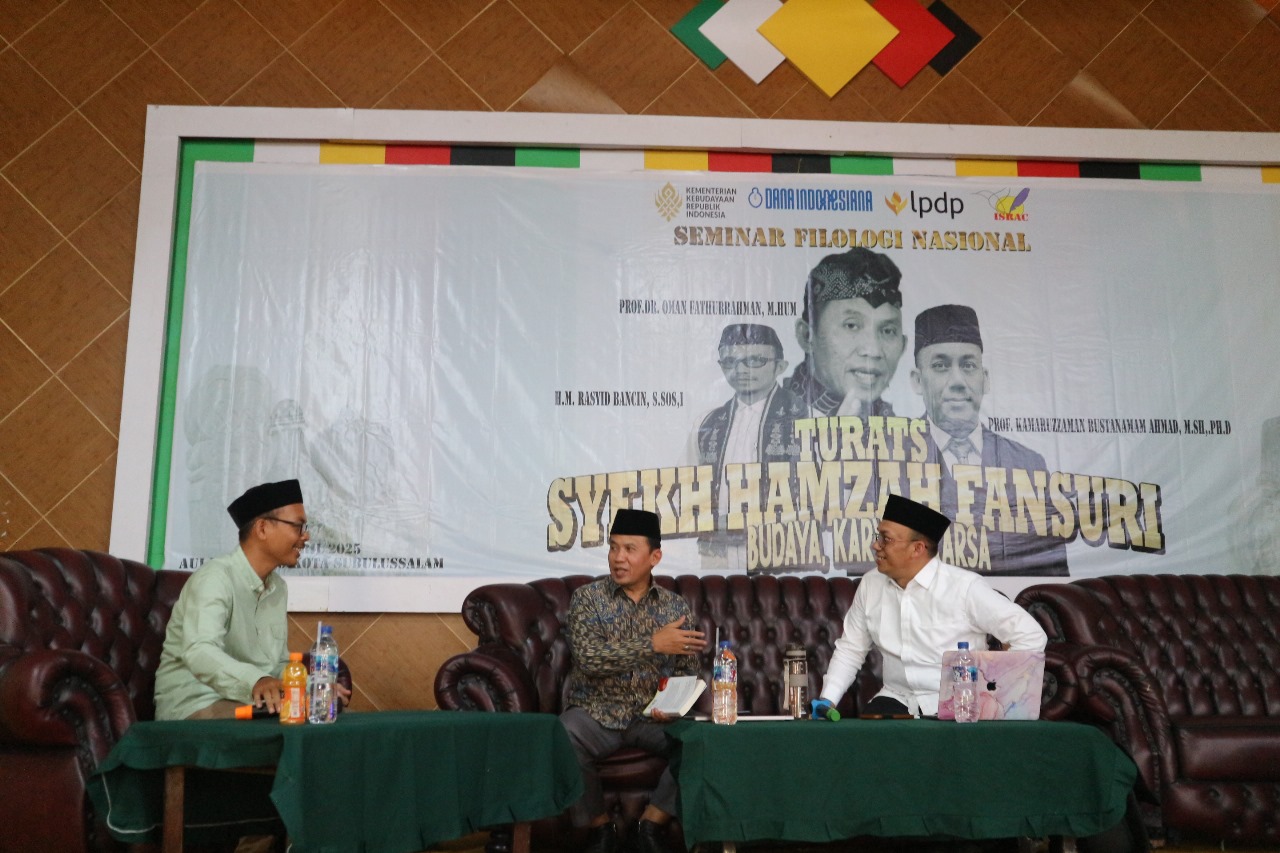During Ramadan, digital life and television will “convert to Islam.” Advertising has returned to being “more Islamic.” Domestic gossip turns to “drifting spiritual experiences.” Soap operas will catch up on who is the most “Islamic” actor. Entertainment programs are also very diverse. Laughing in the middle of the night and early in the morning is a trend. I do not know how much revenue is the profit in the entertainment industry during the month of Ramadan. Here religion becomes a commodity. It is reported that:
PT Media Nusantara Citra Tbk (MNCN) targets a double-digit revenue increase by 2022. The company is also aiming for higher advertising revenue during Ramadan. Investor Relations of PT Media Nusantara Citra Tbk (MNCN) Luthan Fadel Putra said that Ramadan and Eid are expected to present excellent prospects for the media industry, especially television which is inseparable from the addition of prime time broadcast hours on television. Before Ramadan, prime-time television shows were only held once, from 18.00 to 23.00. However, with the momentum of Ramadan, prime time broadcast hours will increase. They are starting at 01.00 until the time of the Fajr call to prayer. It will occur from 01.00 until before the time of the Fajr Azan.
The trend in the entertainment world to use religion as “merchandise” is not just a monopoly in Indonesia. The Overseas country also experiences the same symptoms. I am not sure if this phenomenon is part of the revival of religion in the post-modern era. So, the modern era is the era of the revival of religion, putting religion outside the arena after the modern era. However, the return of religion tends to be given more to the issue of commodities. As seen from the narrative above, religion has become suitable for various industries. In social reality, the emergence of multiple programs that carry religion can be seen in ‘Umrah with artists,’ ‘Umrah with Ustadz A, and various programs that turn religion into a commodity. So it is not surprising that travel service bureaus use religion for their interests.
In socio-political life, religion is also very attractive. It is not good to describe them one by one, where the magnet of faith is so strong in the life of this nation. The phenomenon of religion as a commodity illustrates the symptoms of post-modernism. Religion has become a charm but is directed at capitalism. If someone uses religious symbols, a person who participates in a talent competition is a golden opportunity to be exploited. Micro-sociologically, whatever clothes she wears tend to be “advertising.”
Artists who wear headscarves when advertising is explicitly targeted at Islamic teachings. Also, in Islamic products, such as shampoo or bath soap. In the past, shampoo stars tended to be flaunted when showered in the bathroom. Now, the artist has changed to wearing a hijab, and she can spread the charm because she uses a specific shampoo. The same thing happened with bath soap. Where in the past, there were families who did not wear headscarves. Now some artists wear headscarves in liquid soap wrappers. Interestingly, when there are advertisements from abroad, specific brands, the boy is called Ahmad when they enter Indonesia.
There is nothing wrong with the symptoms above. It is legal. Because the market is asking for the things above. In the modern era, the spirit of religion is used in economic activities. The book by Amy Chua and Jed Rubenfeld entitled The Triple Package: What Really Determines Success (2014) clearly explains how the religious spirit works when looking at several business empires. The Triple Package describes which religious groups dominate business globally, especially in developed countries. They see that the religious network factor plays a significant role in seeing success globally.
The book The Korean Mind (2012) by Boye Lafayette de Mente tells the various concepts that drive Korean business from their perspective in actualizing the spirit. Once again, the religious spirit works very strongly in the secular community. However, this spirit is not in the realm of ritual but instead becomes a trigger and booster of enthusiasm in work. When I went to Kyoto, at one of the temples near a mountain, thousands of people lined up to drink the water from the mountain. They wrote hope on the temple. Some say that the Japanese are outwardly Western, inwardly very spiritual.
Therefore, when there is a symptom of a religion becoming a commodity in Indonesia, there is nothing wrong. However, what is very sad is that religion cannot play a complete role. This Canadian philosopher wrote about how religion could function in a secular or post-secular era. In A Secular Age (2007), Charles Taylor explains that it is necessary to have a 100% Christian mindset. In the book, he talks about Modern Narrative Reform. This book received many positive responses to bring religion back to the surface. People who wore flats on television got a very extraordinary response in the past. Wearing religious symbols seems shameful. Now, people who used to wear kembem in the past have begun to wear the hijab when appearing on television gradually. They even become very great fans which means that appearing religious, initially embarrassing, now turns the audience’s attention to them as a positive response.
Religion is important. Now even though it is secular, it is religious and ritualistic. Even though the thought is allegedly liberal, the ritual of the Tahajjud prayer at night and the Duha prayer in the morning remains a mandatory agenda for the thinker. Despite receiving a salary from a capitalist company, in a luxury car, you can still hear the reading of the Qur’an, Qasidah, and da’wah from leading lecturers online. Even though he lives in a luxury apartment and rarely goes to the mosque, he always invites orphans to have a birthday. Even though there are banks that have not “converted to Islam,” their CSR (Corporate Social Responsibility) funds are still given to Muslims. Here it appears that religion functions as individual piety and social piety.
Religion is still needed, an important moment in the life of a cosmopolitan society. Although the mind is very secular, it remains faithful to the rules of worship. Even the most powerful countries have excellent relations with the center of the majority religious authority in one of the countries in Europe. In Japan, for example, there are expressions of being born a Shinto, marrying a Christian, and dying a Buddhist.
Religion will not be eliminated in a Planetary Civilization. Spirituality will continue to live in human life. However, the phase of faith before it changes entirely in the Planetary Civilization may stop first at the stage of religion as a commodity. This phase will be completed when the era of Artificial Intelligence resonates and has echoes in every corner of human life because AI technology cannot offer spiritual satisfaction.
 |
| Source: (Don Iannone, 2021). |
People can be touched by the sound of the call to prayer in Mecca, which is seen on YouTube. Nevertheless, the feeling will be different if one listens live in Mecca. In spiritual outbursts, humans want to feel firsthand. They do not wish to be represented by any device. This satisfaction seems to be unable to be provided through the representation system. That is where religion appears at the forefront in the era of Planetary Civilization.
Seeing the conditions above, actually, those who make religion a commodity must think again because, in a Planetary Civilization, deviations from universal norms will be quickly abandoned by their followers. Therefore, religion is not taken too far as a commodity because what will happen is purely artificial awareness.




